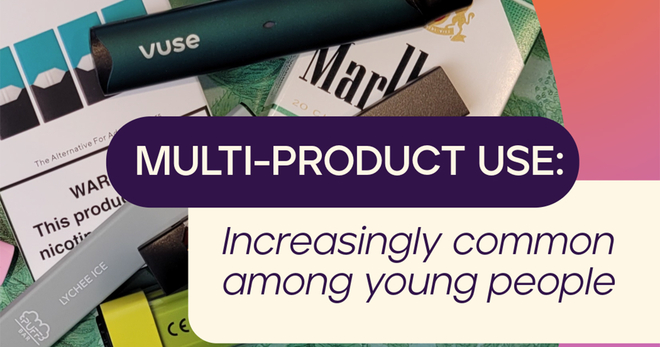Nicotine content in e-cigarettes more than doubled in 5 years
The average nicotine concentration in e-cigarettes sold in U.S. retailers more than doubled from 2013 to 2018, according to a study by Truth Initiative and Centers for Disease Control and Prevention researchers, who say the increase in the addictive chemical is an immediate public health concern as the country confronts an epidemic of youth e-cigarette use.
The study found that nearly all e-cigarettes sold contained nicotine, with the average nicotine concentration in e-cigarette products increasing from 2.10% to 4.34% between 2013 and 2018, a 106.7% increase. The data also show that sales of e-cigarette products almost tripled from 129.4 million units in 2013 to 365.3 million from March to September 2018, a 182.3% increase.
JUUL, the top-selling e-cigarette that debuted in 2015 with pods that contained 5% nicotine strength, drove much of the increase. Products with more than 5% nicotine concentration accounted for just 0.7% of the market share in 2015. Three years later in 2018, they represented more than two-thirds — 67.2% — of the market.
E-cigarette products containing no nicotine accounted for only 1% or less of the market share in every year examined. Yet the majority of youth e-cigarette users think they vaped only flavoring, not nicotine, the last time they used a product, according to the University of Michigan 2016 Monitoring the Future study. Nearly two-thirds — 63 percent — of JUUL users between 15 and 24 years old did not know that the product always contains nicotine, according to a 2017 Truth Initiative study.
Researchers used sales data from March 2013 to September 2018 from U.S. retailers — including convenience stores, mass merchandisers, discount stores, club stores, dollar stores and military commissaries — to examine changes in the nicotine concentration of disposable and rechargeable e-cigarettes, e-cigars, e-hookahs and other nicotine delivery devices, and e-cigarette product refills, e-liquids, accessories and replacement parts.
The availability to youth and young adults of e-cigarettes with high nicotine concentrations are of immediate public health concern and warrant remedial action.
Consequences for young people
Researchers note that high-nicotine e-cigarettes — like JUUL and the many similar products and copycats — may pose a greater health risk because they could worsen the effects of early nicotine addiction, which can harm brain development, alter nerve cell functioning, increase the risk of young people smoking cigarettes and change brain chemistry in ways that make adolescent brains more susceptible to other addictive drugs. A previous Truth Initiative opinion article published in the Journal of the American Medical Association warned that these products may reverse declines in overall youth tobacco use.
“The present study’s findings reinforce the importance of efforts to prevent youth access to e-cigarettes,” the authors wrote. “The dramatic changes in the e-cigarette market, the recent introduction of products with higher concentrations of nicotine, and the recent surge in e-cigarette use among youth, underscore that the availability to youth and young adults of e-cigarettes with high nicotine concentrations are of immediate public health concern and warrant remedial action.”
Despite the high stakes, e-cigarettes are still sold in a relatively unregulated environment with fewer restrictions on marketing and advertising than other tobacco products have. The Food and Drug Administration has allowed e-cigarettes to remain on the market without its required premarket review until 2022.
This review is critical to understanding how individual e-cigarettes impact public health. After ruling that the FDA acted illegally in delaying its required review of e-cigarettes, a federal judge set a deadline of May 12, 2020, for e-cigarette manufacturers to submit their products to the FDA for public health review if they want to keep them on the market.
For more information on protecting young people from e-cigarettes, read “Action Needed: E-cigarettes.”
More in emerging tobacco products
Want support quitting? Join EX Program
By clicking JOIN, you agree to the Terms, Text Message Terms and Privacy Policy.
Msg&Data rates may apply; msgs are automated.


